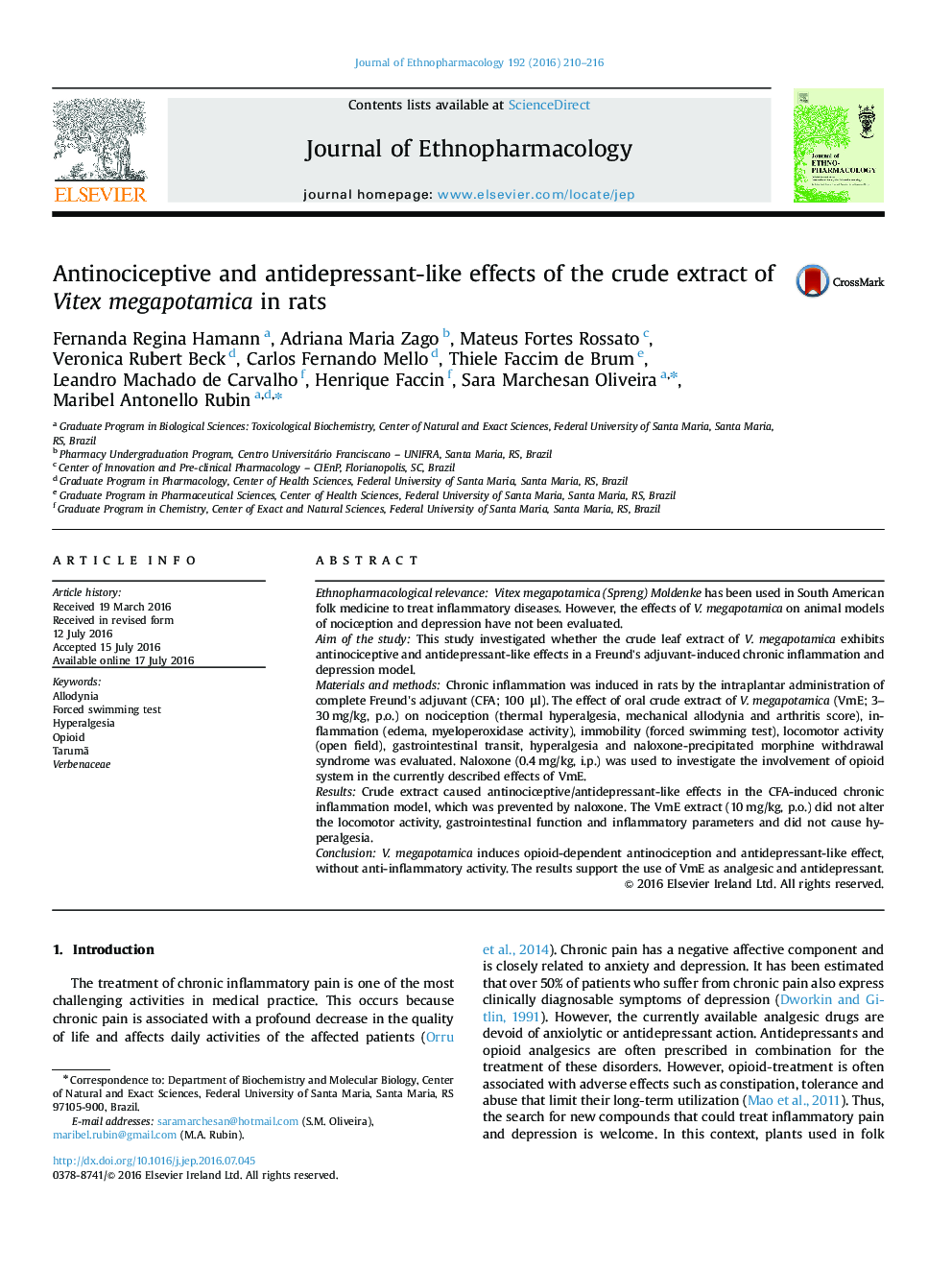| Article ID | Journal | Published Year | Pages | File Type |
|---|---|---|---|---|
| 2544548 | Journal of Ethnopharmacology | 2016 | 7 Pages |
Ethnopharmacological relevanceVitex megapotamica (Spreng) Moldenke has been used in South American folk medicine to treat inflammatory diseases. However, the effects of V. megapotamica on animal models of nociception and depression have not been evaluated.Aim of the studyThis study investigated whether the crude leaf extract of V. megapotamica exhibits antinociceptive and antidepressant-like effects in a Freund’s adjuvant-induced chronic inflammation and depression model.Materials and methodsChronic inflammation was induced in rats by the intraplantar administration of complete Freund's adjuvant (CFA; 100 μl). The effect of oral crude extract of V. megapotamica (VmE; 3–30 mg/kg, p.o.) on nociception (thermal hyperalgesia, mechanical allodynia and arthritis score), inflammation (edema, myeloperoxidase activity), immobility (forced swimming test), locomotor activity (open field), gastrointestinal transit, hyperalgesia and naloxone-precipitated morphine withdrawal syndrome was evaluated. Naloxone (0.4 mg/kg, i.p.) was used to investigate the involvement of opioid system in the currently described effects of VmE.ResultsCrude extract caused antinociceptive/antidepressant-like effects in the CFA-induced chronic inflammation model, which was prevented by naloxone. The VmE extract (10 mg/kg, p.o.) did not alter the locomotor activity, gastrointestinal function and inflammatory parameters and did not cause hyperalgesia.ConclusionV. megapotamica induces opioid-dependent antinociception and antidepressant-like effect, without anti-inflammatory activity. The results support the use of VmE as analgesic and antidepressant.
Graphical abstractFigure optionsDownload full-size imageDownload high-quality image (216 K)Download as PowerPoint slide
